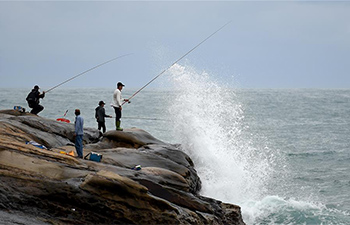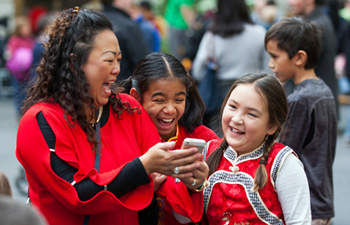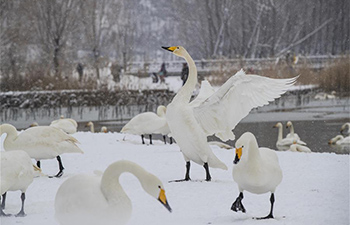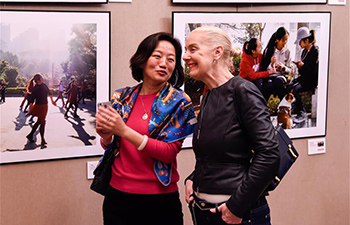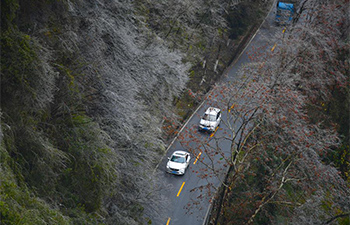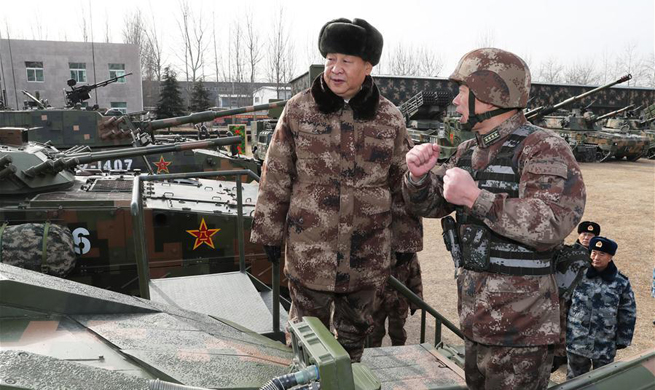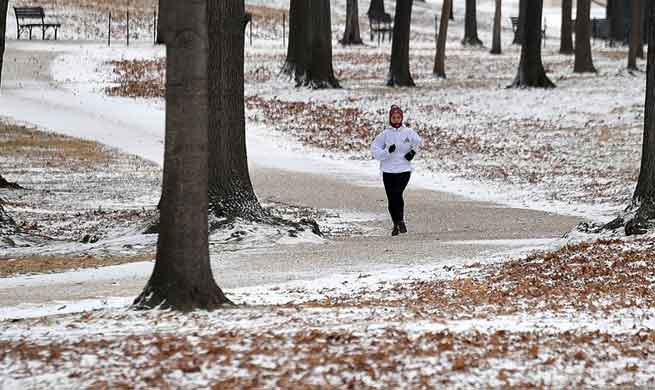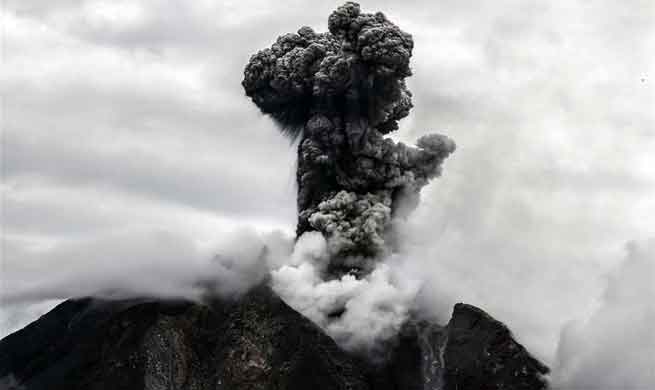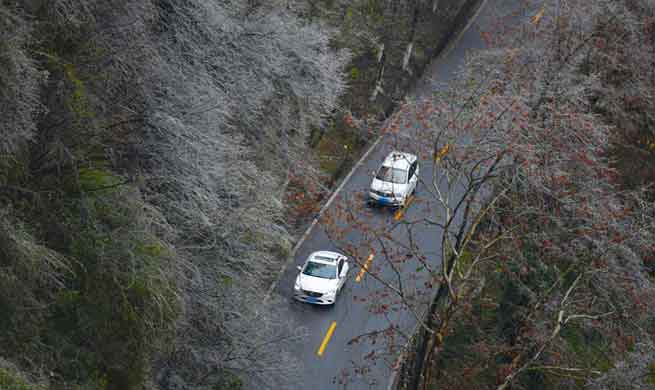By Yoo Seungki
SEOUL, Jan. 5 (Xinhua) -- South Korea and the Democratic People's Republic of Korea (DPRK) started dialogue efforts from the very first day of 2018, sending a valuable New Year's gift to people on the Korean Peninsula.
Top DPRK leader Kim Jong Un said in his New Year's Day address that his country was willing to participate in the South Korea-hosted Winter Olympic Games and talk with Seoul about it.
It was a long-awaited response to the proposal by South Korean President Moon Jae-in, who had repeatedly asked the DPRK to join the PyeongChang Winter Olympic and Paralympic Games since he took office in May.
"I see sincerity in the New Year address by Chairman Kim Jong Un of North Korea (DPRK) expressing his willingness to participate in PyeongChang Olympics," Lee Sang-man, professor of the Institute of Far Eastern Studies, Kyungnam University, said in an interview with Xinhua Wednesday.
A little time was left for the winter sports event to kick off, and the two sides embarked on necessary preparations rapidly. The Winter Olympics were slated to be held in February at South Korea's namesake county of PyeongChang in the eastern Gangwon province.
Just a day after Kim's New Year speech, Seoul offered to Pyongyang holding a senior-level, inter-governmental talks on Jan. 9 at the Peace House, a building controlled by South Korea in the truce village of Panmunjom.
During the past dialogues in Panmunjom, which straddles the heavily guarded inter-Korean border, the two sides tended to find a breakthrough to improve the bilateral relations and build peace on the Korean Peninsula.
Pyongyang positively responded to Seoul's dialogue efforts, agreeing first to reopen a communications channel at the liaison office in Panmunjom, which had been cut off for the past two years.
The DPRK severed the hotline of direct dialogue between the two sides in February 2016 as the previous South Korean government unilaterally closed down the inter-Korean industrial zone in the DPRK's border town of Kaesong.
The shutdown decision of the Kaesong Industrial Complex, which housed more than 120 South Korean companies and hired over 50,000 DPRK workers before the shutdown, was made in response to the DPRK's fourth nuclear test in January 2016.
On Friday, the DPRK accepted South Korea's dialogue overture without any change of the dialogue venue and time, which Seoul had proposed.
During the upcoming talks, South Korea and the DPRK were forecast to first discuss details on the DPRK delegation's dispatch to the PyeongChang Winter Olympics, and if such dialogues go smoothly, the two sides could put a wide range of issues on the dialogue table.
South Korea already proposed to the DPRK discussing issues of mutual concern during the high-level talks.
"A possibility cannot be ruled out for starting a discussion on inter-Korean summit talks if the Winter Olympics ends successfully," said the professor who expected the possible issues of mutual concern to be the reunion of separated families, the resumption of operation in the Kaesong Industrial Complex and the resumed tour to the DPRK's scenic resort of Mount Kumgang.
"From this perspective, (the DPRK's) participation in the Winter Olympics can become a turning point in improving inter-Korean relations," said Lee.
The reunion of separated families between the two sides has been an emotionally-charged event as it was sparsely held according to political situations on the peninsula.
People across the two sides have been banned from visiting and contacting each other since the 1950-53 Korean War ended in armistice, not peace treaty. The Korean Peninsula remains technically in a state of war.
The tourism project to Mount Kumgang, a scenic mountain in the DPRK's eastern region, have been halted since a South Korean female tourist was shot dead in July 2008 by a DPRK solider after allegedly venturing into an off-limit area. The project was launched in 1998.
Another sign of a thaw in inter-Korean relations as well as peace on the Korean Peninsula came as President Moon and U.S. President Donald Trump agreed Thursday night that the two allies would not conduct the springtime war games between Seoul and Washington during the 2018 Winter Olympic period.
The annual war games, which tended to kick off in mid-march and last by the end of April, could have coincided with the 2018 Winter Olympics slated for Feb. 9-25 and the Winter Paralympic Games on March 9-18.
The DPRK has denounced the South Korea-U.S. joint military exercises, codenamed Key Resolve and Foal Eagle, as a dress rehearsal for northward invasion.




